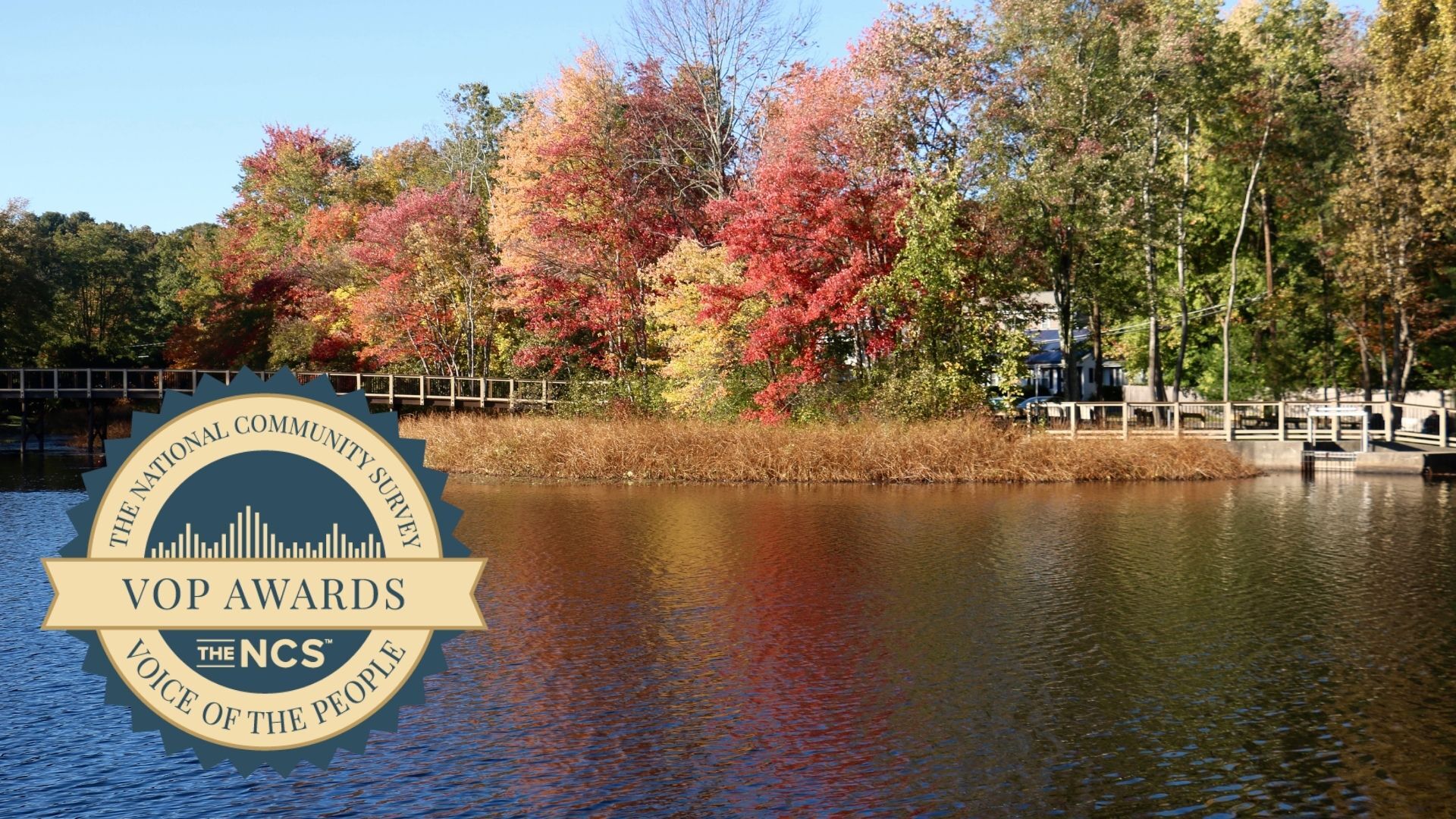How Ashland Transformed the Natural Environment By Increasing Open Spaces
By Polco on September 30, 2021

Prioritizing resident voice led to increased resident satisfaction and more open spaces in Ashland, Massachusetts
From 1990-2015, land preservation and the environment took a backseat to residential housing development in Ashland, MA. This growth attracted more people to Ashland. But it also left leaders with questions about what Ashland’s residents wanted.
By 2016, a new management team stepped in as the Town Council of Ashland. They were eager to hear more about resident opinions. So they sent out the first National Community Survey (The NCS) to hear feedback from residents.
The results of this survey showed that the people of Ashland wanted change. They wanted to preserve the environment and wanted more open spaces.
Ashland’s efforts in response to the NCS results helped increase resident satisfaction related to the natural environment. Between 2016 and 2019, rankings for preservation of natural areas increased 15% and open space increased 11%.
“We believe that consistent community dialogue about our actions helped lead to our residents recognizing our efforts on the 2019 survey and allowing us to enjoy a significant increase in positive ratings,” said Jenn Ball, Assistant Town Manager.
“Ashland should be proud of their efforts to listen to resident voices to transform the natural environment,” said Damema Mann, Director of National Engagement for Polco/National Research Center (NRC).

Ashland’s efforts led to a 2020 Voice of the People Award for Transformation in the Natural Environment, an award presented by Polco/National Research Center (NRC) and the International City & County Management Association (ICMA). This is the only national award that honors local governments based on feedback from residents and acknowledges local governments that make significant improvements on The NCS ratings. These towns, like Ashland, take the best actions on behalf of their communities.
Prioritizing the People
After gathering data through The NCS, the management team began planning how to prioritize residents’ desire for more open spaces. The strategic plan they developed became one of the most significant efforts to preserve Ashland’s land since 1948 when leaders donated over 500 acres of forest to the Sudbury Valley Trustees and Ashland Town Forest Committee.
As part of the plan, the Town recently added over fifty additional acres of land to the already vast town forest. The Town also purchased 65 acres of land from a local business owner to protect the agricultural land of Ashland.
In addition, Ashland built a community park and recreation area on a 3-acre plot of land that was previously home to run-down buildings and unusable land. Last, leaders acquired a Rail Transit District and transformed it into a community park and outdoor recreational retreat.
Rail Transit District Transformation
Ashland’s leaders put great effort into the Rail Transit District, an 180-acre plot of land surrounding the commuter train station into Boston. Although the area was originally planned to be developed into housing and a technological park, The 2016 NCS results encouraged Ashland’s leaders to negotiate to decrease the environmental impact of the plans.
As a result of these negotiations, The Town managed to:
- Buy the seven most crucial acres of the district to use as open space.
- Convert a portion of the land to become a retirement community.
- Secure funding to build a YMCA for community use.
- Purchase nine additional acres in the Rail Transit District and preserve it as a natural resource so it cannot be replaced or industrialized.
- Secure and preserve a critical piece of land in the historic district. The deed protects a historical home from demolition, as well as 26 additional acres surrounding the home.
Resident Satisfaction Revealed
The efforts of the new management team did not go unnoticed. Their project proposals passed unanimously in Town Hall, a rare occurrence in Ashland. In addition, The NCS ratings increased significantly related to natural resource preservation, land use, and overall satisfaction and confidence in local government and decision-making abilities.
Ashland’s leaders aren’t done yet. The Town Council is devoted to becoming a net-zero community by 2040 by working with the Open Space and Recreation Committee.
Ashland’s leaders also plan to invest in the Town Forest Committee's projects and plans as they look toward the future. This involves creating and maintaining new hiking and biking trails. It also involves introducing a tree bylaw to protect the large tree canopy that covers the town. This new bylaw discourages developers from cutting down more trees. It also encourages them to create smaller, more compact housing, like apartments.
The stormwater management utility is another important tool used to decrease pollution in the waterways and streams flowing through Ashland. This program pairs nicely with the Health Department's recent restrictions on herbicides and certain chemicals in fertilizers.
“We will continue to work to promote the proper use of our open spaces and natural recreational areas,” said Ball.
Related Articles- How Winter Green Increases Resident Satisfaction Through Innovative Health and Wellness Park
- How Boulder Builds a Legacy of Land Conservation
- How The City of Norfolk, VA Revitalized the Natural Environment
Popular posts
Sign-up for Updates
You May Also Like
These Related Stories

How Polco Powers Strategic Planning in Five Steps
.jpg)

